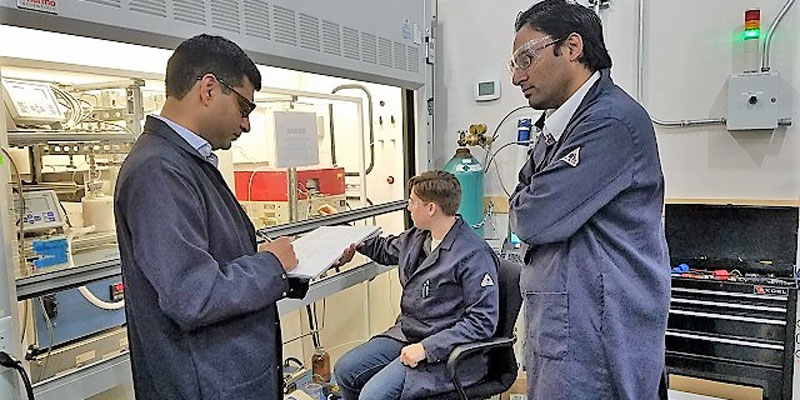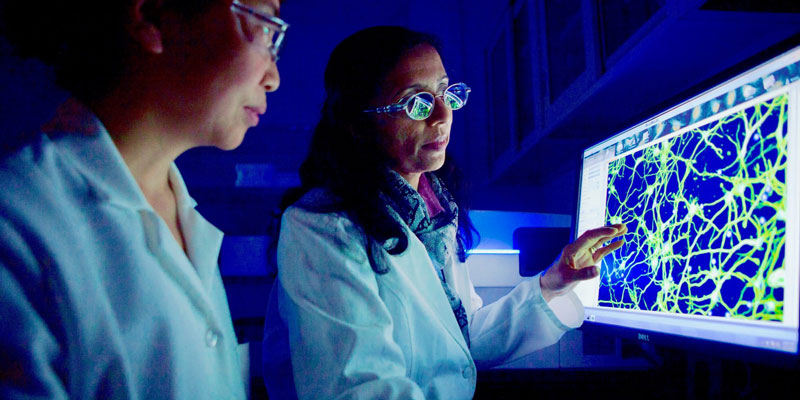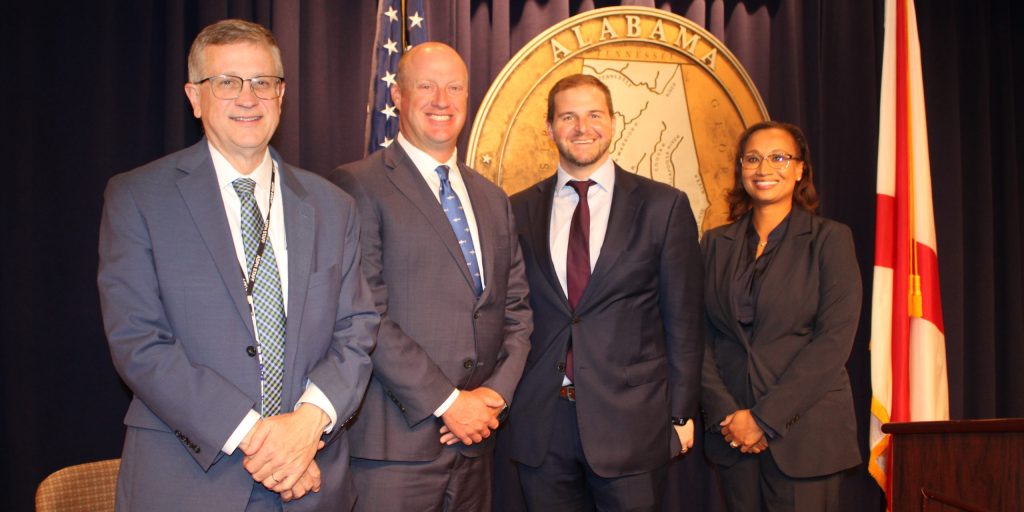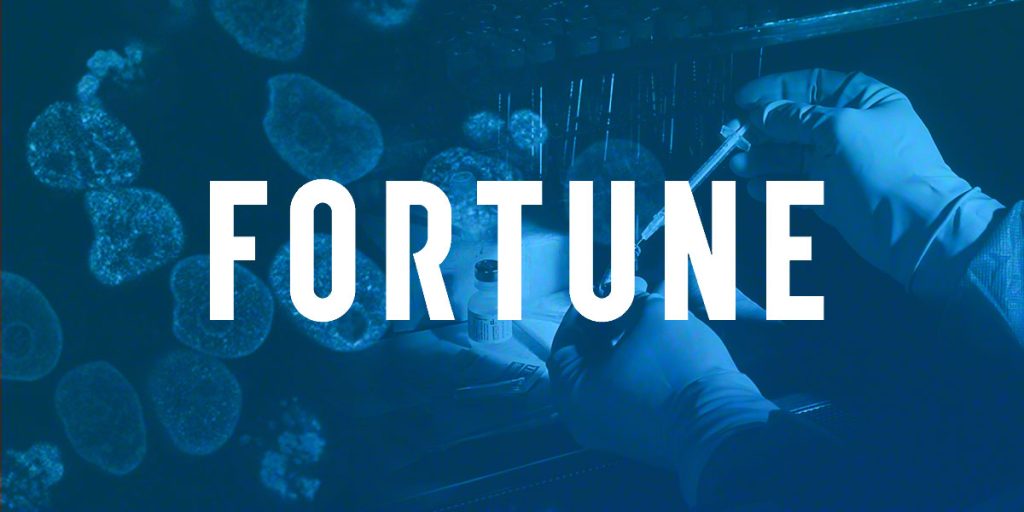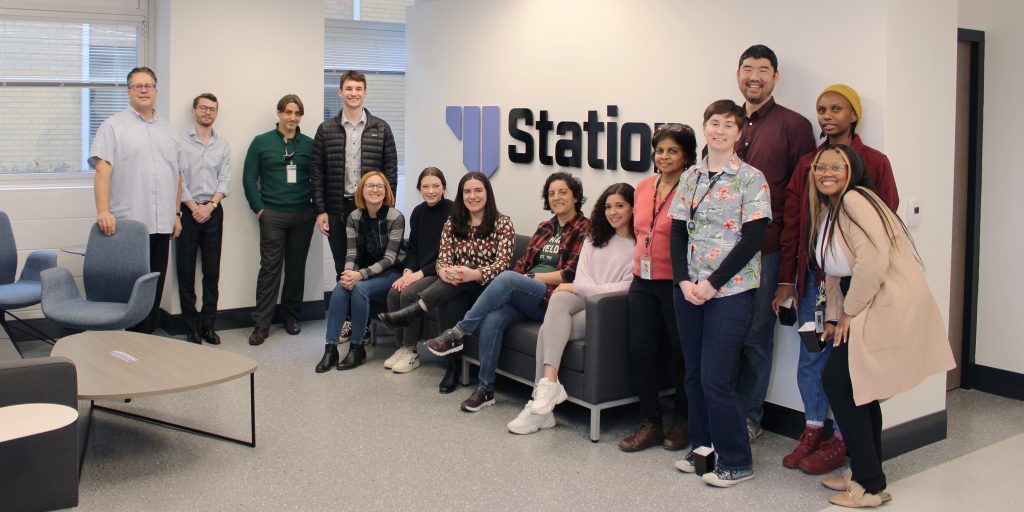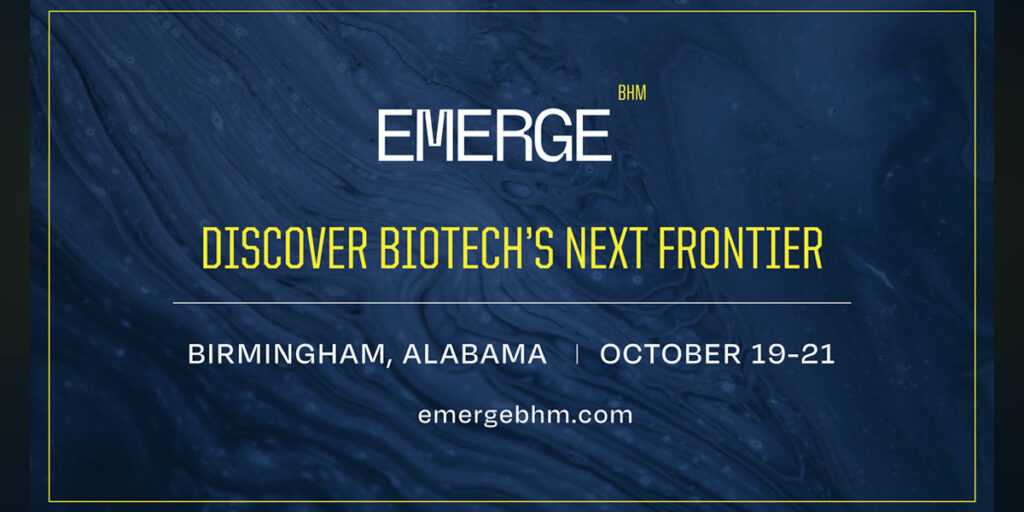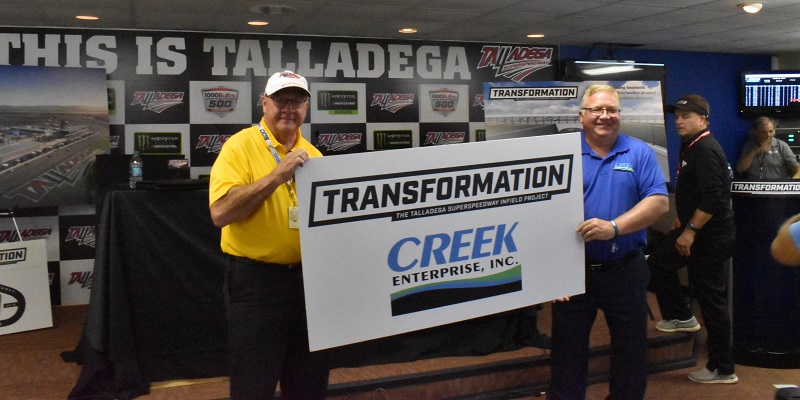Birmingham’s Southern Research has developed a reputation in cancer treatment and other medical advancement, but an area where it is showing much promise today could end up having its greatest worldwide impact.
Environmental research has emerged as an exciting field for Southern Research, so much so that it has become one of three pillars the institution is focusing on in its Change Campaign fundraising efforts.
The “Earth” pillar focuses on green chemistry and ways to reduce the use of petroleum in consumer goods or find ways of recycling carbon dioxide, among other initiatives. The mind pillar focuses on neuroscience to find treatments for Alzheimer’s, Parkinson’s and Lou Gehrig’s disease, or ALS. The body pillar focuses on cancer treatments.
The fundraising for green chemistry is a vital part of Southern Research’s efforts in the field.
“It is highly competitive,” said Amit Goyal, director of Sustainable Chemistry and Catalysis at Southern Research. “A lot of this is high-risk, high-reward, so it is funded by federal funds.”
Most federal funds are directed at universities and national labs, Goyal said.
“A lot of times good ideas also do not get funded,” he said. “It’s not just that they’re not good enough.”
Jonathan Geisen is an attorney with Baker Donelson law firm and is a “Change Agent” working on the Change Campaign for the Earth pillar.
“I think green chemistry, environmental R&D is going to have a harder time sometimes raising funds than health-care research or other medical innovations,” Geisen said. “It’s a long game and I think it’s the sort of thing that we really need to support.”
Geisen said he knew more about the other areas of research than he did green chemistry when he joined the Change Campaign.
“When I got involved with this particular group and met with some of the scientists and met with some of the other people involved with the program, I was just blown away,” he said.
The more he knows about the areas of focus, the more excited he is to support the Earth pillar, Geisen said.
“I think some of the things that Southern Research is doing – alternative fuels, different types of recycling plans – there are so many things going on here that I was unaware of until I got involved,” he said. “It’s the sort of thing that we need to support in this community to continue to improve our life.”
Goyal said there are a couple of areas where Southern Research shows great promise.
“There are two areas that we are really excited about,” he said. “(One is) a chemical that we are trying to make from sugars extracted from plants that are used in fibers in clothing and carbon fibers. It’s a high-growth area, so it might have a lower inertia to become commercialized if we’re successful. The second is to use CO2. There is a lot of CO2 that if it can be consumed rather than just emitted it can lower greenhouse gas emissions.”
Philanthropic funds give Southern Research freedom to explore those ideas. The payoff could be huge, Goyal said, as a large amount of petroleum-based products could become plant-based and have rippling benefits on the economy.
“It is not easily to compete with petroleum-derived sources, these things developed over the last century,” he said. “If you think of a commodity chemical, it usually costs about $1 a kilogram, so there is not much room between the feedstock price and the final product, which is a chemical in this case. To develop processes at scale to produce at the same economic value with less greenhouse gas is quite challenging. We’re trying to address that.”
Geisen said Southern Research is a vital part of the three-legged stool that makes up the entrepreneurial and innovation base for Birmingham, along with UAB and Innovation Depot.
“Birmingham needs things like Southern Research,” he said. “We need places that are innovative, that are bringing the best and the brightest to Birmingham.”
The Change Campaign ends October 11 with the “An Evening of Change” event.
(Courtesy of Alabama NewsCenter)




